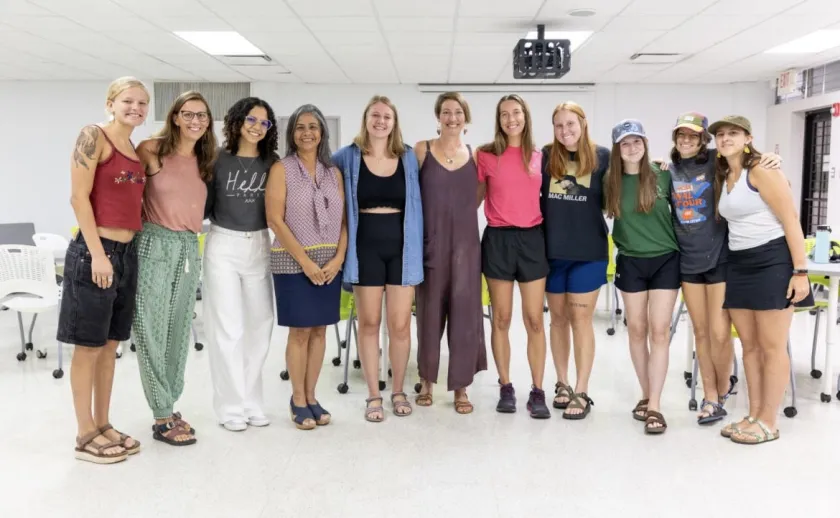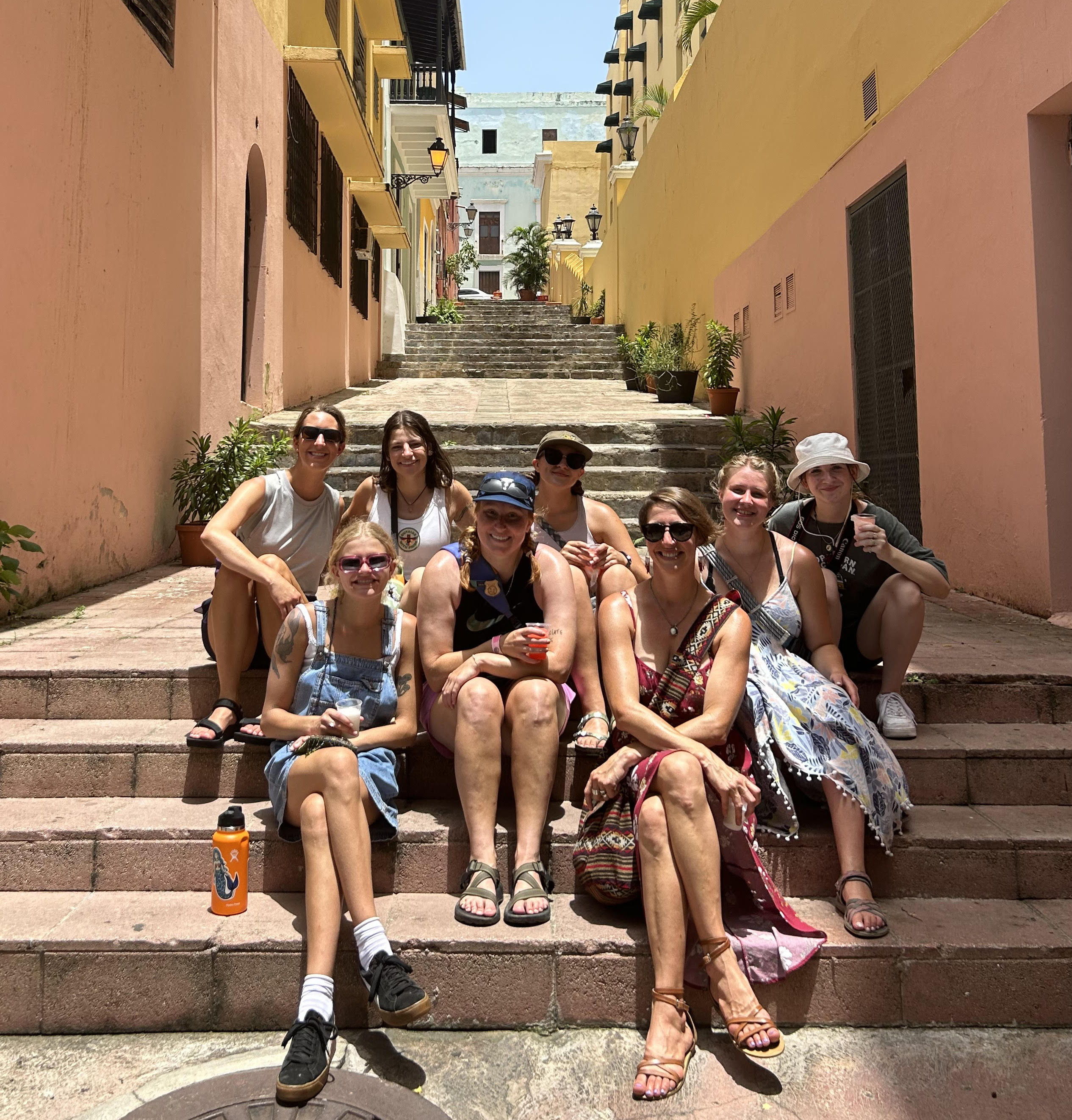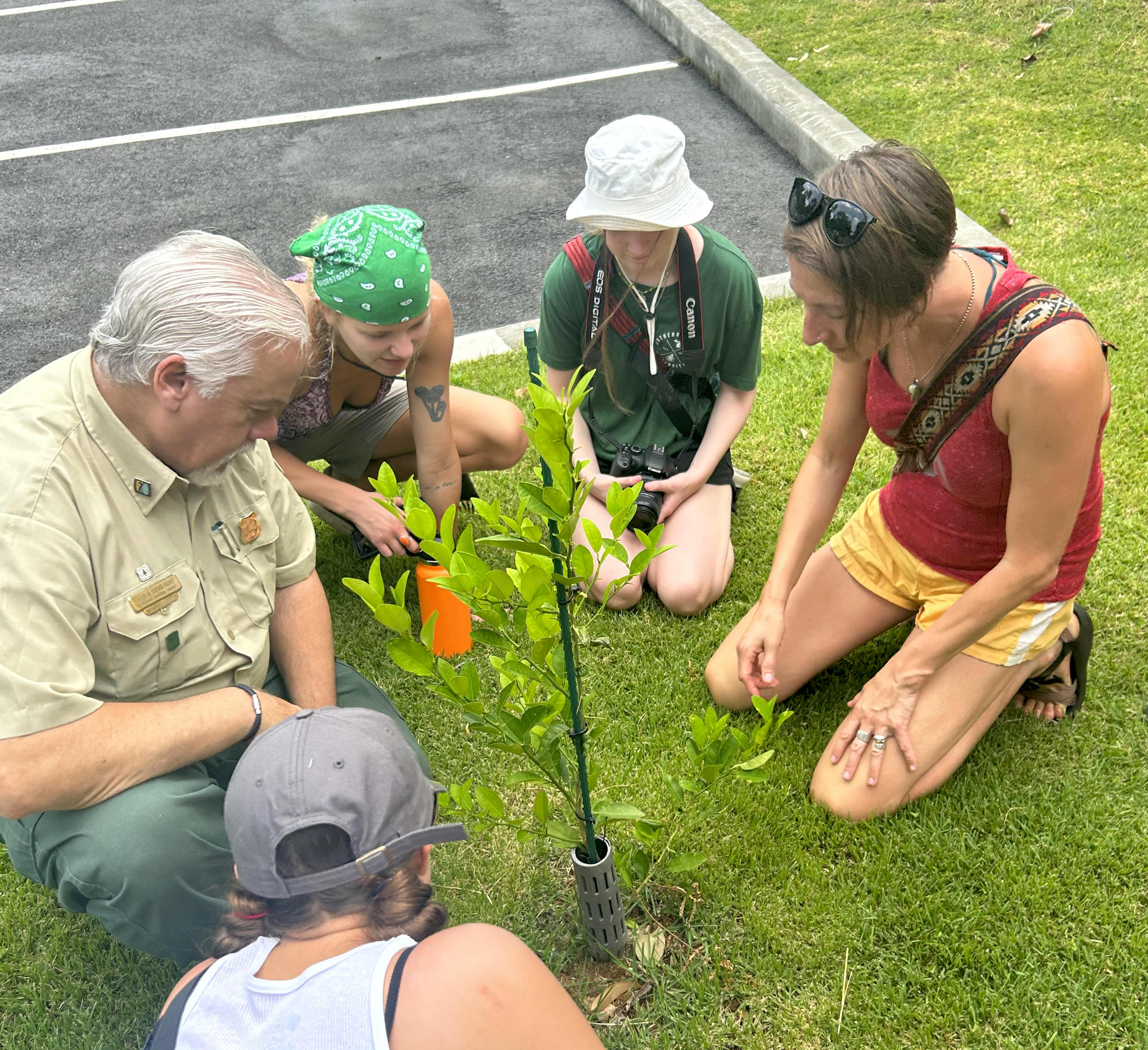Northern Michigan University students, a faculty member and an alumna recently completed a 10-day immersive experience in Puerto Rico. The trip complements a course that explores community resilience in the face of adversity and the intricate interplay of human needs, services and communications systems.
In addition to delving into Puerto Rican culture, students engaged with and learned from community-based groups specializing in a broad range of areas. These included food sovereignty, urban agroecology, street art and murals as tools for social activism, well-being and disaster preparedness, environmental sustainability, eco-tourism, and women-led/supported community development.
"Something that made this immersive trip so special is that we can read articles, and see pictures for the whole semester, but without the in-person element of actually having been in Puerto Rico there is so much missing,” said Emilia Nelson, a senior communication studies major. “Being there, we got to see the struggles first hand, but it was honestly most inspiring to see the way the communities worked together to be themselves, to be better for the future and to uplift one another. They also overcome so many challenges. It opened my eyes on how we as a community in Marquette do or don't work together to overcome some of our local challenges. I even frequently thought back to my home town to compare the community experiences."
NMU Communications and Media Studies Professor Sara Potter led the delegation, which included seven students and community health advocate Kristen Karls, an NMU graduate.
The initial phase of the visit included a stop at Finca Neo Jibairo, a private ecological farm nestled in Rio Grande. Christina, co-owner and farmer, dedicated several hours to enlightening the group about the project's history, which is rooted in indigenous farming practices such as tobacco cultivation. Students also received an extensive crash course on hydroponic farming.
“This experience shed light on the challenges faced by Puerto Rican farmers post-Hurricane Maria and highlighted the development of adaptive systems to combat climate change,” Potter said. “With a staggering 90% of Puerto Rico's food being imported, this farm tour underscored the pivotal role played by local small farms and urban agroecology in advancing food sovereignty as a fundamental human right.”
Students also visited Centro de Conservacion de Manaties del Caribe, an organization dedicated to the rescue and rehabilitation of manatees that is funded through an affiliation with the University of Puerto Rico. The center works with veterinarians, wildlife experts and scientists to develop a strategic plan aimed at significantly reducing human-related manatee fatalities. It collects baseline data on the growth and life history of manatees in the region, all while promoting education and advocating for policy changes to conserve and preserve the West Indian Manatee—one of the most endangered marine mammals in Puerto Rico—and its habitats. The center also rescues and rehabilitates sea turtles and pelicans.
At the San Juan campus of the University of Puerto Rico, students gained insights on the "Patria" project, an innovative, evidence-based model for interdisciplinary training and service delivery in post-disaster mental health and well-being resources. Patria brought together advanced-level graduate and doctoral students from psychology, rehabilitation counseling, and social work for specialized training. These trained students, under the guidance of licensed professionals, collaborated with 13 community-based organizations across the island to provide free mental health services onsite, in unconventional community spaces, via telehealth, and even in residents' homes.
“The impact of their work was substantial, with over 10,000 residents participating in psycho-educational workshops, 3,000 therapy sessions conducted for more than 800 clients, and 58 students entering the professional sector better prepared to respond to future crises,” Potter added. “Additionally, the University of Puerto Rico established two specialized programs to bolster the long-term capacity of the local mental health sector.”
Students spent an afternoon with Colectivo Moriviví, an all-women artistic collective engaged in public art and artivism. They closely examined a mural titled "Paz para la Mujer," which features two black Latinas with concealed eyes, fully nude bodies, surrounded by both living and deceased butterflies. This striking mural was created to raise awareness about the sexual violence experienced by black, brown, and indigenous Puerto Rican women. However, it fell victim to vandalism, with someone painting undergarments over the women's bodies.
"The muralists explained that this act inadvertently validated Moriviví's message and philanthropic mission, sparking a dialogue about domestic violence, art, and censorship, uniting the community to challenge policies and ideologies that marginalize women," Potter said.
In addition to these informative and engaging meetings, students enjoyed various enriching experiences during their trip. They spent a day on a catamaran, snorkeling in a protected coral reef, where they encountered jellyfish, stingrays and eels. They embarked on a hike through the island's deep interior with an all-women adventure team and explored petroglyph-carved monoliths at one of the most important Pre-Columbian sites in the West Indies. They also gained insights into the ecology of El Yunque rainforest from a conservationist and park guide.
Upon returning home, students underscored the significance of community-based research and highlighted the invaluable work of community-based organizations and local groups in promoting community determination, equitable participation and a commitment to action and change.
Inspired by the philosophies of Paulo Freire, the course is rooted in principles of reflection and action. It aims to encourage students to grapple with issues of social justice, explore hierarchical structures and critically assess the representation of marginalized groups in the public sphere. It also seeks to empower students to become active participants in a globalized world and foster a greater sense of empathy, cultural competence and a passion for addressing pressing societal issues with a critical mindset and a focus on civility.



